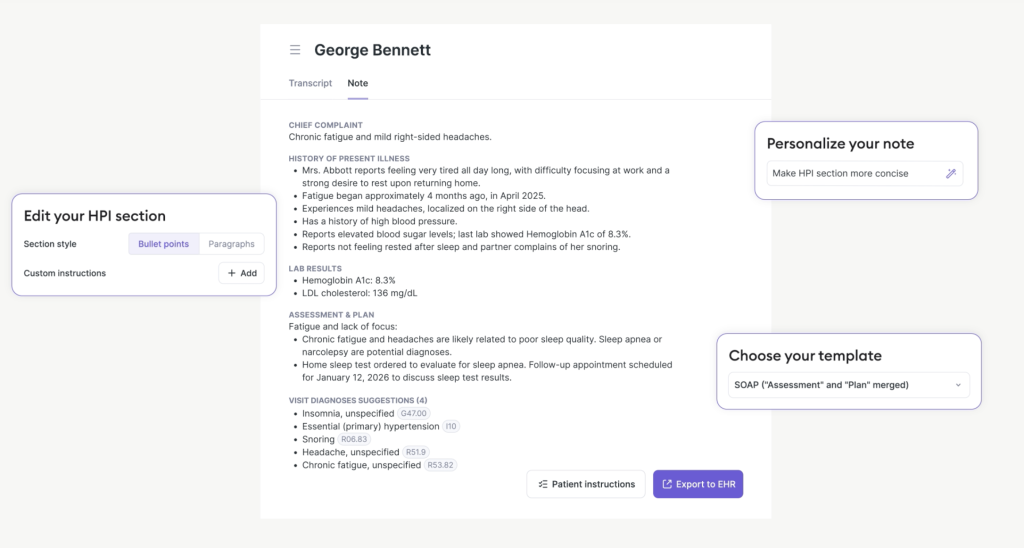As first reported by Crunchbase News, Nabla has raised $70 million in Series C financing to further scale its AI copilot designed for doctors and healthcare professionals. The round was led by Germany’s HV Capital, with support from Highland Europe, DST Global, and existing investors Cathay Innovation and Tony Fadell’s Build Collective. This latest funding brings Nabla’s total raised since its 2018 founding to $120 million, although the company did not disclose its current valuation.

Source: nabla.com.
Nabla’s flagship product—an AI assistant that automates note-taking and medical report writing—is already embedded in over 130 healthcare organizations. The company claims it has reduced documentation time by more than 50%, helping mitigate clinician burnout and improving patient satisfaction. Over the past six months, Nabla has reportedly quintupled its revenue and now supports more than 85,000 clinicians globally.
Expanding from documentation to dynamic clinical agents
With the new funding, Nabla plans to evolve from a documentation tool into a more robust “Adaptive Agentic Platform.” This next-generation approach aims to embed AI deeper into clinical workflows, enabling features like real-time coding assistance that flags billing issues during patient encounters, and a “context-aware agent” that can proactively retrieve historical patient data and interact directly with electronic health records (EHRs). The company also plans to expand its tools for nurses and inpatient care teams.

Source: nabla.com.
This pivot reflects a broader trend in digital health investment. According to Crunchbase News, AI-focused startups continue to attract massive funding, with nearly half of U.S. venture capital in the past year going to AI-related companies. In Q1 2025 alone, AI represented 53% of global venture funding—totaling a record-breaking $59.6 billion.
Nabla’s Series C raise signals growing confidence in AI’s transformative potential within healthcare. By expanding its platform from documentation automation to intelligent, context-driven support across the care continuum, the company aims to be at the forefront of reshaping how clinicians work—enhancing accuracy, reducing burnout, and ultimately improving patient outcomes.





